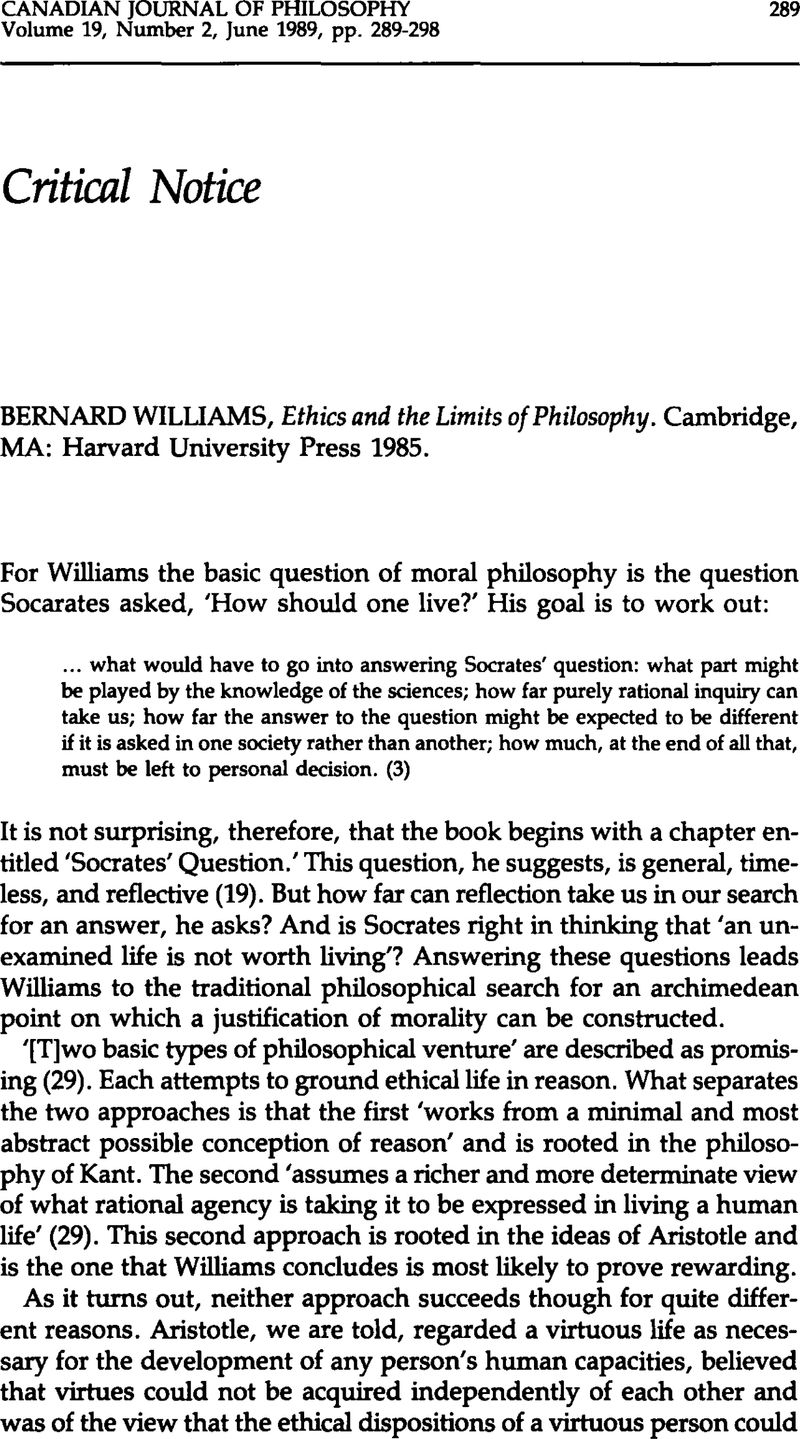No CrossRef data available.
Article contents
Bernard Williams, Ethics and the Limits of Philosophy. Cambridge, MA: Harvard University Press 1985.
Review products
Published online by Cambridge University Press: 01 January 2020
Abstract

- Type
- Critical Notice
- Information
- Copyright
- Copyright © The Authors 1989
References
1 I take it that this is the kind of point that is central to Devlin's argument in The Enforcement of Morals (Oxford: Oxford University Press 1965).
2 Williams offers little in support of this skeptical observation in Ethics and the Limits of Philosophy. My comments thus constitute an extrapolation which is based on my reading of Morality: An Introduction to Ethics (New York: Harper Torchback Books 1972) which is referred to in a footnote and Moral Luck (Cambridge: Cambridge University Press 1981).
3 Were time and space available, I would argue that this confusion is basic to his arguments in earlier papers in which he defends essentially the same position.
4 There is no reason to suppose that Aristotle saw this point any more than Williams. Indeed, his view of the intellectual virtues suggests their isolation from the civic virtues even though Aristotle does not dwell on the point. For a discussion of the role of values in science there are few accounts better in my mind than Peters (Ethics and Education [London: George Allen and Unwin 1966)146, for example).


